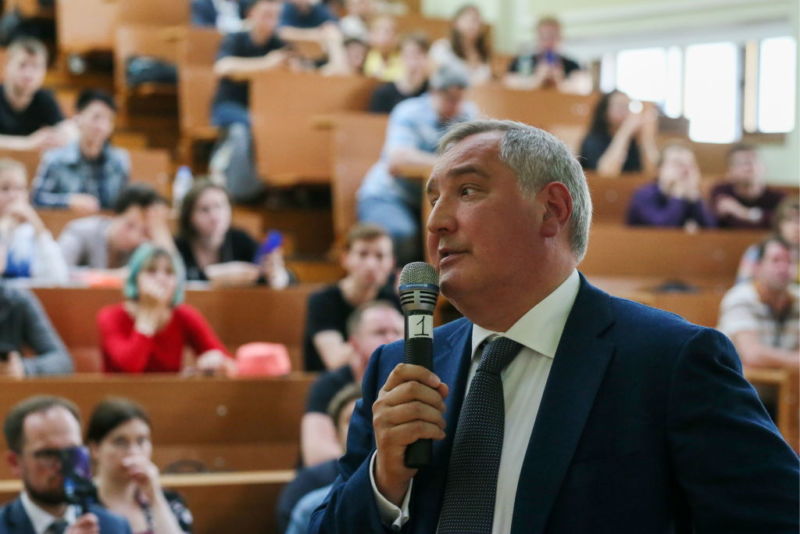
The leader of Russia's civil space program appears to be increasingly disengaged from reality. In recent months Dmitry Rogozin, the chief of Roscosmos, has given a series of interviews in which he has made all manner of big promises about the supposedly bright future of Russia's space program.
For example, in an interview published just today, Rogozin made the fantastical claim that his country's space program has the technical means to reach Mars and land cosmonauts there within eight to 10 years. If Russia is ready to finance such a plan, Rogozin guaranteed that Roscosmos stands ready to deliver.
Russia, Rogozin also recently said, is ready to do reuse better than SpaceX and the United States. SpaceX's Falcon 9 rocket, he said, is only "semi-reusable," and Russia aspires to build a 21st-century rocket capable of 100 flights. He then reiterated that Russia would like to develop a version of its Soyuz rocket that has a methane-fueled engine.
SpaceX has flown its Falcon 9 first-stage rockets five times, and it plans to push toward reusing each booster 10 times. It is not clear what, if any, steps Russia has taken toward reuse. The reality is that Russia depends on reliable but decades-old technology to get into space. And while Rogozin talks a good game about sending his cosmonauts to the Moon or to Mars, and about competing with SpaceX on reusable rockets, this appears to be mostly bluster.
Budget cuts ahead
Roscosmos has a relatively meager budget to carry out its civil space activities. Its funding for civil programs in 2020 is 176 billion rubles, equivalent to $2.4 billion; that is about one-tenth the level of NASA's funding. Moreover, there are reports that Russia's Finance Ministry wants to cut Roscosmos' budget substantially, by 20 billion rubles a year for the next three years.
According to a Russian space industry source, this 11-percent cut would affect "financing of the creation of new launch vehicles and advanced space technologies." This means that Roscosmos may see no funding for any of the kinds of programs that Rogozin is speaking effusively about.
In a revealing interview with The Wall Street Journal published this weekend, a Siberian-born physicist named Mikhail Kokorich talked about how he fled Putin's Russia after co-founding Dauria Aerospace in 2011. Dauria was the first private space company founded in Russia, but the Soviet-era approach there proved too onerous, Kokorich said. After moving to the United States, he founded Momentus Space.
Kokorich offered this blistering, first-hand assessment of national prominence in space: "The US is definitely number one, then the European Union, then China,” he said. “Next, I think India is now comparable with Russia, and maybe even more advanced than Russia in a wider sense."
reader comments
685